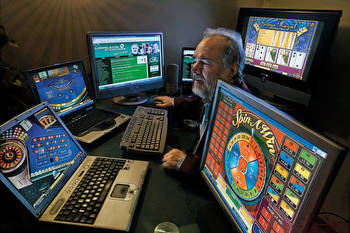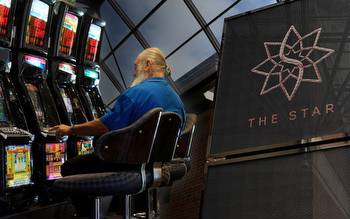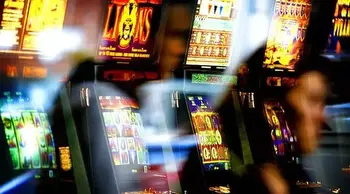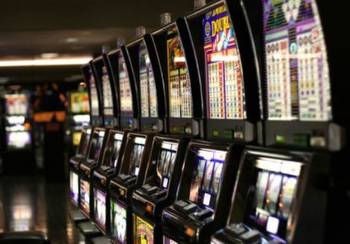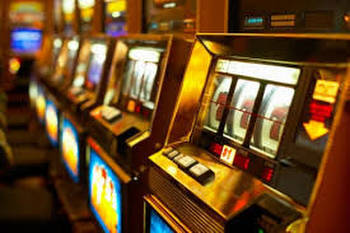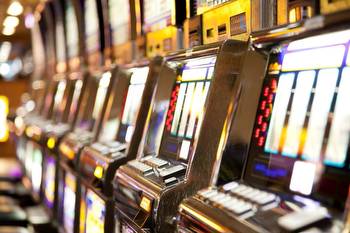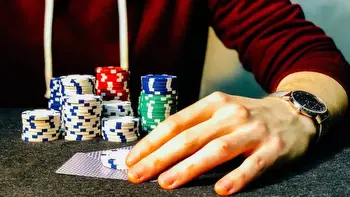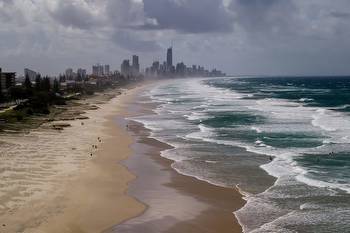Canberra gambling reformers call for tighter regulations
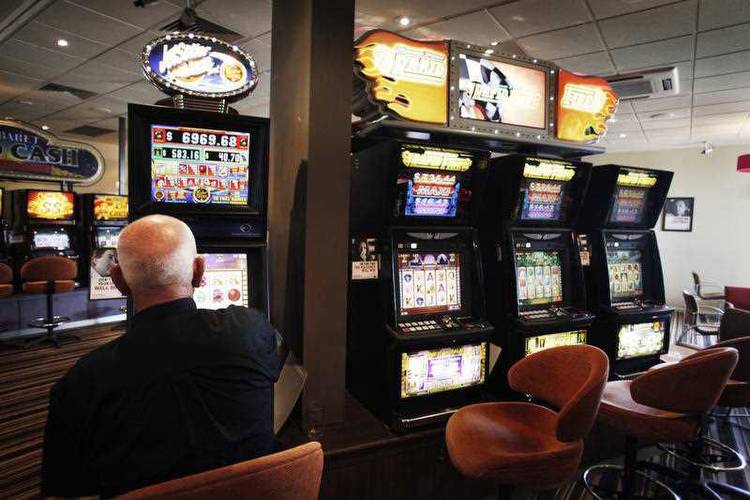
Pokies at clubs are in the Canberra Gambling Reform Alliance’s crosshairs; their new strategy to minimise gambling harm wants tighter regulations and fewer gaming machines by the end of the decade.
“The greatest harm to the Canberra community is still coming from poker machines operated by the clubs sector,” CGRA’s co-chair Jeremy Halcross said.
But ClubsACT responded that removing in-venue gambling would harm problem gamblers – they would take to unregulated online gambling instead – and decrease funds for cultural and sporting groups and community organisations.
“The calls for increasing regulation in what is already the most regulated jurisdiction for poker machines in Australia are getting to the point where they will cause harm, rather than reducing it,” Craig Shannon, CEO of ClubsACT, said.
The CGRA – founded in 2017 by community organisations including ACTCOSS and Anglicare to protect Canberrans from gambling harm – published a nine-point plan earlier this week, for Gambling Harm Awareness Week. They called on the ACT Government to urgently enact CGRA’s reforms.
“The social and financial costs of gambling continue to severely impact ACT individuals, families, and wider community, and the ACT Government must do more to protect Canberrans from gambling harm,” Kate Seselja, CGRA co-chair, said.
The ACT Government is already working on many of these proposals. Ms Seselja thanked the government for the “modest steps” it had taken to reduce community harm from poker machines – “But the reform process still has a long way to go.”
The CGRA call for the ACT Government to reduce the number of poker machines in the ACT to 2,500 by 2028.
The government intends to reduce the number of electronic gaming machine licences in the ACT to 3,500 by 1 July 2025, and introduce incentives for clubs to move to zero machines. In March, Shane Rattenbury, ACT Minister for Gaming, announced a $1.74 million initiative, giving community clubs $15,000 for each gaming machine they surrendered.
However, Mr Shannon is concerned removing electronic gaming machines could “escalate the drive to online gaming, increasing potential harm in our community”.
“If someone is using an EGM inside a venue, then they are at least in an environment where there are pathways to diversion and intervention,” Mr Shannon said. “If they are not gambling in a venue, and instead finding it easier to gamble online, then those pathways don’t exist.”
The ACT has reduced the number of electronic gaming machines to one-third since 2015, Mr Shannon stated: “One of the most significant drops in poker machines in any jurisdiction in Australia”. He considers the CGRA strategy excessive.
According to the 2019 ACT Gambling Survey, 34,000 ACT adults (10 per cent of the adult population) classified as ‘at-risk or problem’ gamblers, but only 3,000 people (0.8 per cent of the adult population) classified as ‘problem’ gamblers. Of those 3,000 people, approximately 600 people are part of the ACT self-exclusion scheme, Mr Shannon noted.
“What the CGRA is calling for is a whole series of impacts for the broad ACT community to potentially impact at best 2,500 people. Their response is disproportionate.”
Moreover, poker machines were significant revenue drivers for clubs, and the money went back to the community, Mr Shannon argued. “The revenue generated by those machines disproportionately benefits a much larger part of the ACT community than they cause harm… Sporting and cultural groups and organisations that benefit from responsible use of electronic gaming machines would lose out significantly.”
The CGRA wants a bet limit of $1 on all poker machines, a maximum load-up of $100, and losses disguised as wins banned; mandatory pre-commitment bets in all venues, and the operation of poker machines banned between 2am and 10am; access to cash in poker machine venues across both ATMs and EFTPOS limited to $250 daily; and a centralised monitoring system (CMS) to ensure the gambling ecosystem in the ACT is transparent, and to implement further reforms such as an ACT-wide self-exclusion regime.
Mr Rattenbury announced in April that the government would introduce a centralised monitoring system over the next two years to control poker machines, set a $5 bet limit (down from $10), and a $100 credit limit. The ACT Government has consulted the clubs industry and gambling harm reduction experts, including through the Community Clubs Ministerial Advisory Council, on the implementation of these reform measures, Mr Rattenbury stated.
Mr Shannon believes the CMS raises privacy issues. It is, he states, “designed to monitor every single individual using a gaming machine”, not just those who are self-excluded.
ClubsACT has proposed a self-exclusion facial recognition system that would alert staff to problem gamblers; it is, Mr Shannon states, the only evidence-based proposal to minimise harm. (In contrast to the CGRA’s proposals, he said: “The wish list of items that are continually being pushed by the anti-gaming lobby generally do not have evidence bases for them.”) While the ACT Government is uncommitted, the system was rolled out across NSW this week.
Moreover, implementing the CMS model will be a $70 million hit to the industry, with a significant recurrent cost to the sector, Mr Shannon states.
“There is no evidence that the CMS system actually supports harm minimisation objectives; it’s just a huge cost to the industry with little commensurate beneficial impact,” he said.
The CGRA also wants funds from the ACT Government’s betting operations tax to prioritise actions that reduce gambling harm, and to prevent clubs from funding their own operations via the government’s Community Contributions Scheme. Under the scheme, clubs must contribute at least 8.8 per cent of net gaming machine revenue to the Gambling Harm Prevention and Mitigation Fund (0.4 per cent), the Chief Minister’s Charitable Fund (0.4 per cent), and community purposes (8 per cent).
The CGRA believes that a lack of transparency undermines reform. Their strategy calls on the ACT Racing and Gaming Commission to provide more granular information (such as consumers’ losses by venue) to improve mitigation strategies (such as self-exclusion).
The strategy wants the ACT poker machine regulatory regime to protect the rights and privacy of people experiencing gambling harm, and for Canberrans to access community club spaces without being exposed to gambling harm.
Mr Shannon stated that harm minimisation was a priority for ClubsACT members; they work with the ACT Government and the ACT Gambling and Racing Commission, and all clubs take part in Gambling Harm Awareness Week.
“We will assist patrons at every opportunity where they identify or they are identified as being at risk, and we encourage everybody to at least gamble responsibly,” Mr Shannon said. “We just do not want to see the broader community suffer by having restrictive interventions into the industry.”
The CGRA’s strategy also supports national efforts to ban sports gambling advertising, and calls on the government to replicate the Victorian “Love the Game Not the odds” program in the ACT to encourage local sports clubs to take a stance against sports betting sponsorship.
“Sports betting is a fast escalating issue, especially post-COVID,” Mr Halcrow said.
Dr Marisa Paterson MLA (Labor) has a petition to ban gambling ads on television, supported by her Labor colleagues.
Mr Rattenbury agreed further work was needed to restrict “the pervasive and damaging gambling advertising”.
Mr Shannon remarked that the CGRA proposals contained no reference to education.
“CGRA seems to be more interested in pursuing punitive, restrictive measures for the broad population of the ACT, rather than using tools like education and otherwise that are significantly beneficial.”
Mr Shannon called on the government to work with ClubsACT to develop a long-term plan to help the club industry recover in the post-pandemic era.
“That’s not going to be achieved if every year the anti-gaming lobby comes out and calls for even further reductions of poker machines,” he said.










